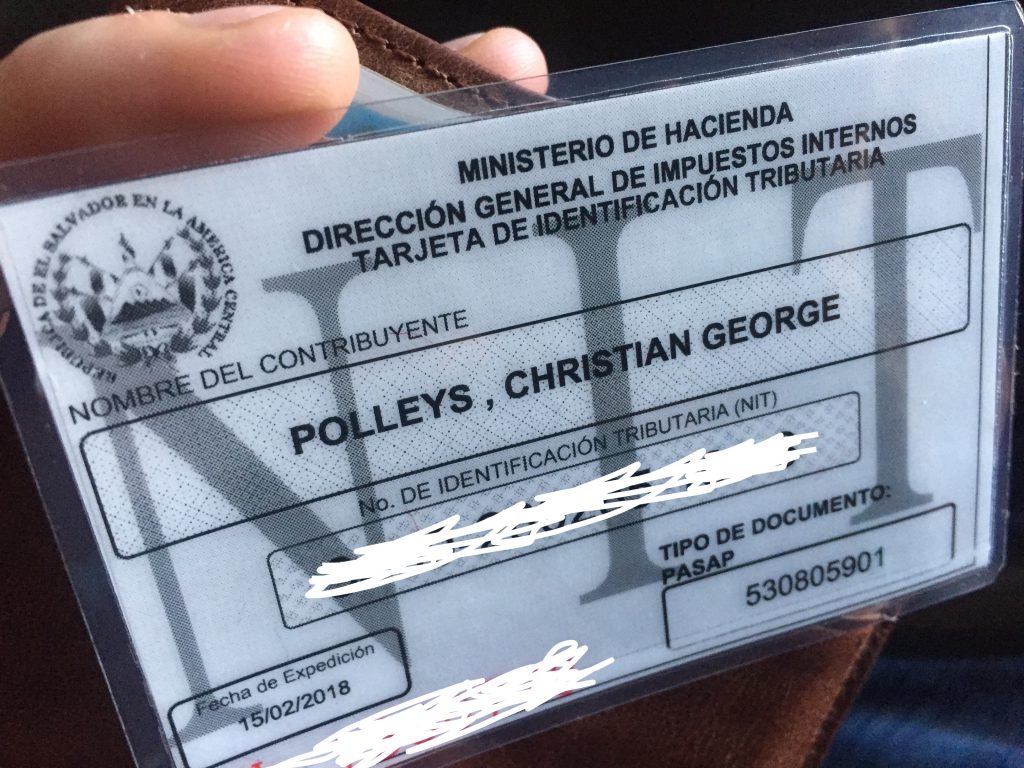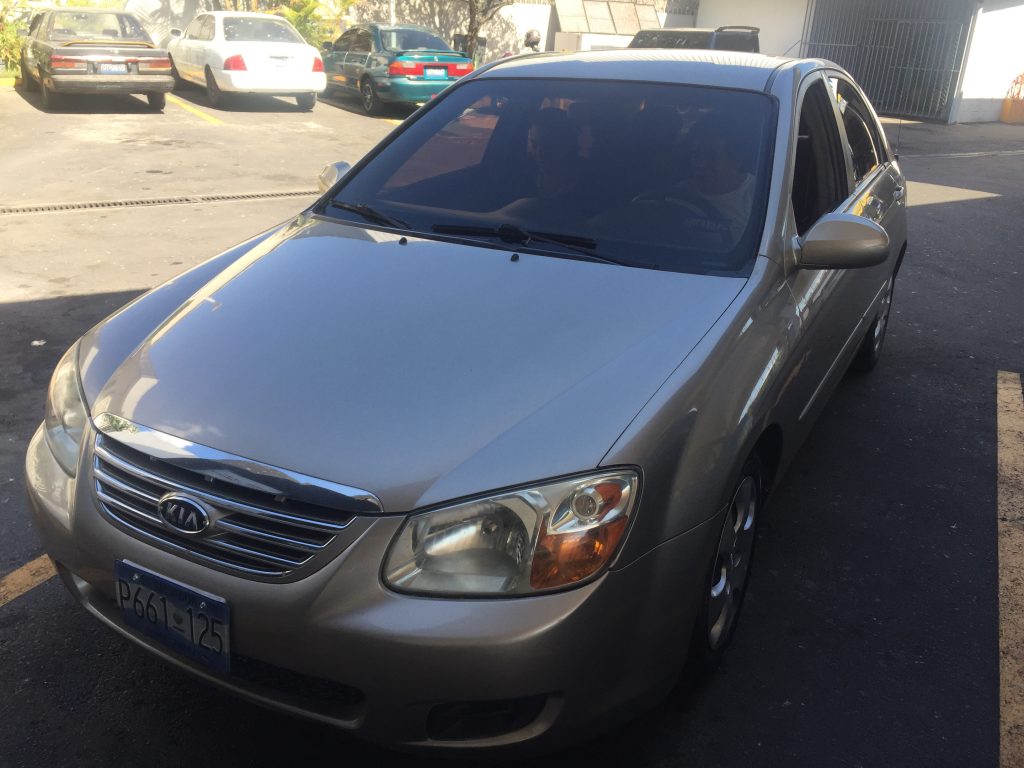A car is definitely necessary in El Salvador. Traveling on busses is not very safe, the busses are usually crowded and often the busses take twice as long to travel anywhere.
Rental cars aren’t a bad option, however, I usually spend about $150 each trip I make to El Salvador, which means it’s expensive when you add up all of my trips. So, I’ve decided to buy a car. It was a mutual agreement between Stephanie and I, because she’s going to be responsible for the car while I’m not around.
The Price of Cars in El Salvador
Cars are typically a little more expensive than they are in the USA. The reason they’re more expensive is because they’re all imported. El Salvador doesn’t manufacture anything, it imports 90% of the goods sold here in the country. It’s very common for junked and damaged cars to be imported from the USA, fixed here and then resold here. I often see cars here that have the original bumper stickers from the United States.
Getting a Tax ID Number (Tax ID = “NIT”)
It’s required to get a NIT before a person can buy a car (or any property for that matter). Most nationals that live here already have a NIT. It’s similar to a social security number, but NIT’s are less important than SSN’s. Apparently they don’t have the same far-reaching importance as the SSN’s we have in the USA. Here is the NIT that I was given:

It’s really just a laminated card with your name and your number – nothing too fancy. The number is your Tax ID Number. I erased mine in the photo. I doubt that it really matters if my number is publicly visible, but I prefer to reduce any possibility of being the victim of identity theft.
Anyway, getting the NIT was rather easy. It only took one trip to a municipal office and about 10 minutes of waiting. Actually, that’s impressive…getting mostly anything done here is usually very time consuming and often takes more than one trip to the municipal office.
Buying the Car

We were fortunate to find a good car. We actually found it through a great idea that Stephanie had. She thought of calling the place that I had previously rented cars. After a couple meetings and negotiating on price, and an overview/review from a mechanic friend, we had a lawyer write the transfer agreement. The lawyers fee was about $52, which seemed to be a good price to me. Once the paperwork was completed, we finalized the purchase of this 2007 Kia Spectra for $3950.
The car had about 100,000 miles. That’s a lot of miles for almost $4,000. In the United States, this would have been a bad deal because it would be fairly easy to find a used car with less miles at the same price. In other words, this car was too expensive by USA standards. However, this is El Salvador. There are less car purchasing options, and there’s a lot of very OLD cars on the road here. Considering the shape it’s in and the good engine it has, it was a good deal.
I chose Kia Spectra for a good reason…
Kia is very common brand name here. It’s often difficult to find parts and products here, and importing parts takes months, so I was very careful to choose make/model of a car that is commonly used here. Kia’s are very common, which means that I won’t have difficulty to find parts when there’s car problems in the future. There’s a lot of auto supply stores and mechanics here in El Salvador so I shouldn’t have a problem with repairs with my new Kia.
Stephanie will use the car and maintain it while I am gone. I’ve insured the car. Stephanie will have her drivers license soon, and she’ll pick me up/drop me off at the airport in the future. The car is an automatic, so that will make it easier for Stephanie to drive.
It’s a huge relief to have this entire process done. It’s a huge weight lifted off my shoulders.

